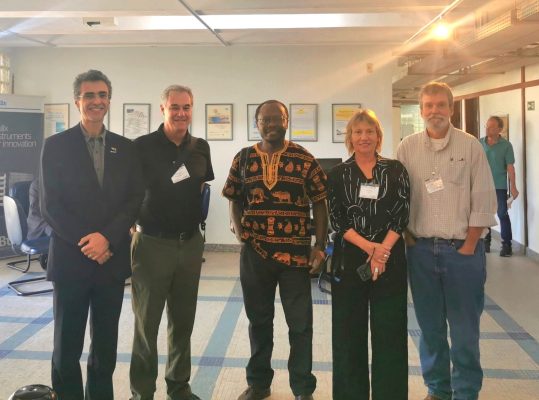
In the scope of the RISC2 Project, the State University of Sao Paulo and INRIA (Institut National de Recherche en Informatique et en Automatique), a renowned French research institute, held a workshop, on that set the stage for the presentation of the results accomplished under the work Developing Efficient Scientific Gateways for Bioinformatics in Supercomputer Environments Supported by Artificial Intelligence.
The goal of the investigation is to provide users with simplified access to computing structures through scientific solutions that represent significant developments in their fields. In the case of this project, it is intended to develop intelligent green scientific solutions for BioinfoPortal (a multiuser Brazilian infrastructure)supported by High-Performance Computing environments.
Technologically, it includes areas such as scientific workflows, data mining, machine learning, and deep learning. The outlook, in case of success, is the analysis and interpretation of Big Data allowing new paths in molecular biology, genetics, biomedicine, and health— so it becomes necessary tools capable of digesting the amount of information, efficiently, which can come.
The team performed several large-scale bioinformatics experiments that are considered to be computationally intensive. Currently, artificial intelligence is being used to generate models to analyze computational and bioinformatics metadata to understand how automatic learning can predict computational resources efficiently. The workshop was held from April 10th to 11th, and took place in the University of Sao Paulo.
RISC2 Project, which aims to explore the HPC impact in the economies of Latin America and Europe, relies on the interaction between researchers and policymakers in both regions. It also includes 16 academic partners such as the University of Buenos Aires, National Laboratory for High Performance Computing of Chile, Julich Supercomputing Centre, Barcelona Supercomputing Center (the leader of the consortium), among others.